Career Development Case Study Series
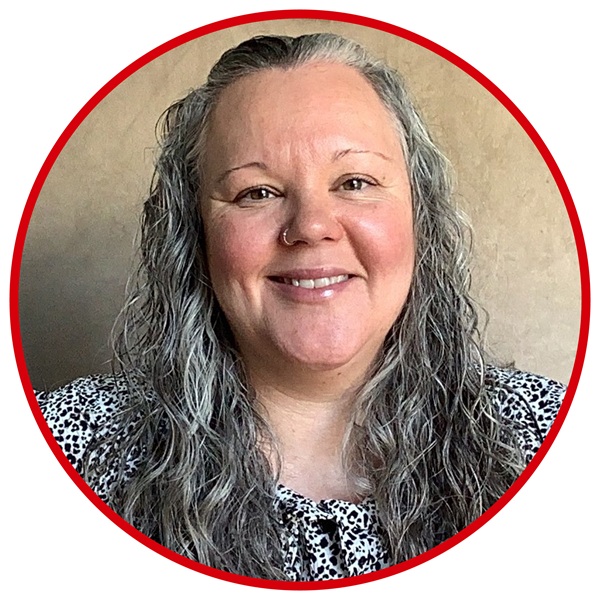
Lesley used her Career Development Days to take a more intentional approach to her professional growth - combining staff coaching, mentoring, and volunteering as a STEM ambassador to build confidence, resilience, and clarity about her future career direction.
Lesley is a Postdoctoral Research Fellow in the Centre for Public Health, working on the NIHR-funded CANTEEN study, which investigates the impact of school meals and free school meals on pupils’ health and wellbeing. She completed her PhD in Human Nutrition at Ulster University in 2009 and has since contributed to a range of studies in human nutrition, public health, and nutritional biomarker analysis. Lesley also spent time outside academia focusing on parenting and personal development, earning a Level 3 Diploma in Childcare, Learning and Development, and working with the charity, Action for Children.
How did Lesley use her Career Development Days?
Lesley first became aware of the Career Development Days policy while completing the revised Personal Development Review (PDR) form for research staff, which places greater emphasis on planning the use of career development days. With support from her Principal Investigator, she began using the days more strategically, taking part in a range of professional development activities. Activities included attending workshops run by Queen’s, participating in a School mentoring scheme, using Queen’s Staff Coaching Service, and volunteering as a STEM ambassador.
Focus on Coaching
A transformative experience for Lesley was her participation in Staff Coaching which involved an initial consultation followed by four 90-minute sessions, with written reflections to capture learning and impact. Initially concerned this might add to an already full schedule of work, volunteering, and family responsibilities, she found it was the opposite:
"I had to set aside time for it, but it actually did the opposite of what I feared. It helped me reflect on how my day and life were structured, and helped me to make changes. As researchers, we’re often working to tight deadlines and the role can be all-consuming, but this process was genuinely beneficial and I got a lot from it."
Lesley credited her experience of coaching with improving her resilience, confidence, and clarity around future career decisions.
“The coach was immediately reassuring, clear, confident, and we established a really strong relationship. I’ve learned strategies and tools for navigating challenging situations which I will continue to use. I feel more resilient and more willing to learn and to grow.”
Becoming a STEM Ambassador
Lesley volunteered as a STEM ambassador using her career development days. Through STEM, she has been involved in the Access Project, where STEM ambassadors can mentor and tutor secondary-aged students. Being a STEM ambassador aligns closely with her academic interests in early intervention and early years education. The training through STEM, including topics like engaging with secondary students and online presentation skills, has directly supported her research and professional growth.
"STEM is a really supportive platform with a strong sense of community. If you're planning an activity, you can post on the message board to ask for ideas, and people are always willing to share. It's a great space for networking and sharing resources. While I’m volunteering as a STEM ambassador, I’m also representing the University, which I think is really positive."
Career Development in Lesley's Own Words...
"I realised that my line manager and team aren’t going to find my next opportunity – that’s up to me. I need to take responsibility for building my CV and investing in my development. That was a turning point. Now I take time every so often to check for opportunities. It doesn’t take long, but building that habit into your routine can make a real difference."
Key Takeaways
Lesley’s case study highlights the power of being intentional when planning the use of your career development days. By combining internal resources like staff coaching and mentoring with external engagement through being a STEM ambassador, she has gained clarity, confidence and momentum in shaping her career path.
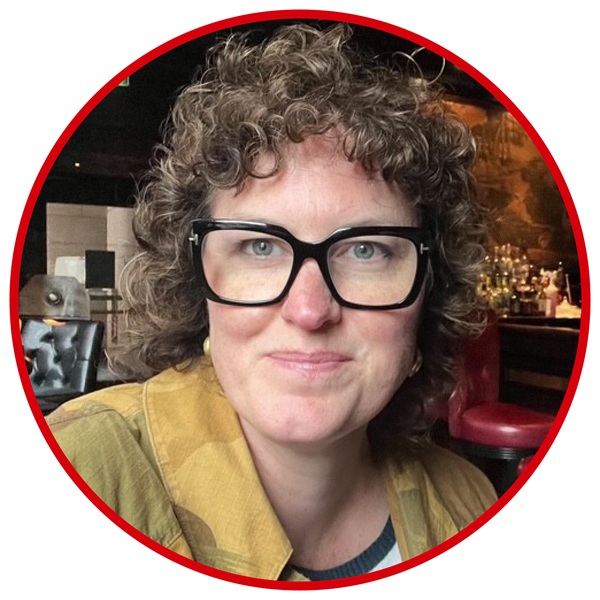
Trisha used her Career Development Days to shape a clear academic identity at the intersection of arts and health. By attending an international research intensive, leading the Northern Ireland Mental Health Arts Festival, and building lasting professional networks, she has deepened her expertise, developed strong leadership skills, and strengthened her academic profile in a growing interdisciplinary field.
Trisha is a Research Fellow in the School of Psychology, currently working on the CaRR project, which examines how staff communication can de-escalate aggression in acute mental health settings, reducing the use of restraint and seclusion. She has worked with multiple Principal Investigators (PIs) across various schools at Queen’s, including the Schools of Nursing and Midwifery, Social Sciences, Education and Social Work (SSESW) and Psychology. In recent years, she has begun using her Career Development Days more strategically to explore career interests and build a professional niche in arts and health.
Trisha used career development days to attend an international Arts and Health Research Intensive in rural Suffolk, funded through the Queen’s Agility Fund. The five-day residential brought together professionals from across the world and offered time to reflect, collaborate, and explore methods for evaluating arts-based health interventions.
Attending the intensive coincided with Trisha preparing an AHRC funding application to evaluate an arts intervention for people on haemodialysis. The course provided timely input from field-leading experts and helped shape the proposal’s focus and methodology.
“I was able to zone in on what would be useful for the project in terms of methods. It helped me shape my thinking for the grant and gave me confidence. We’re still waiting to hear the outcome, but I don’t think we’d have written the same application without that experience.”
The relationships Trisha formed during the experience have also endured.
“We still have a WhatsApp group a year later. People share podcasts, job opportunities, or just what’s going on in their part of the world in terms of arts and health. It’s really active and genuinely useful.”
Trisha also used her career development days to support her voluntary role as Chair of the Northern Ireland Mental Health Arts Festival. Initially joining the board with little knowledge of the organisation, she soon stepped into leadership and helped guide the festival through significant growth, including expanded programming, new funding, and its first staff appointment. The experience allowed Trisha to develop transferable skills that continue to support her academic career.
“I probably learned most about managing the dynamics between people, and how to have challenging conversations. I also gained valuable experience in writing funding applications, which has been really helpful in my research career.”
During her time as Chair of the NI Mental Health Arts Festival, she also got the opportunity to travel to Glasgow to attend the launch of the Scottish Mental Health Arts Festival. This trip was supported by her PI at the time and gave her valuable insight into how a more established festival operated; an experience that inspired new ideas for the Northern Ireland festival.
Trisha encourages fellow postdocs to start with their passions. “If you can figure out what you really care about, you can look for opportunities that help you grow in that direction.”
She also emphasises the importance of early and ongoing conversations with your PI:
“Don’t just talk about career development once a year at your PDR. Try to weave it into regular conversations. Even something small, like linking to the career development day policy in an email, can open the door for conversation.”
Time can be tight, but she suggests building in regular space to look for opportunities - "Even an hour online every few weeks can uncover something valuable."
Trisha’s case study shows how Career Development Days can be used to deepen academic identity, gain leadership experience, and connect with global communities. With support from her PI and careful use of internal funding and protected time, she strengthened her profile in arts and health and developed transferable skills that benefit her broader career.
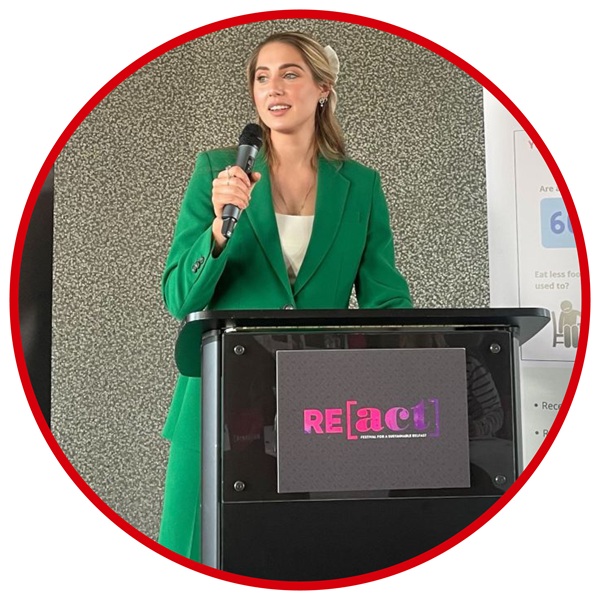
Nicola used her Career Development Days to step outside her comfort zone, building confidence, leadership skills, and visibility through public engagement and collaborative research activities. From delivering a TED-style talk to leading hackathons and creating new training opportunities, she has used her development time strategically to strengthen her academic profile and shape her future career path.
Nicola is a Research Fellow in the Centre for Public Health, working on the Northern Ireland Cohort for the Longitudinal Study of Ageing (NICOLA). She completed her PhD at Queen’s, where she focused on nutrition and lifestyle interventions for healthy ageing and dementia prevention; a theme she continues in her current research.
Building Confidence by Delivering a TED-Style Talk
Early in her PhD, Nicola recognised that public speaking was an area where she wanted to develop her skills and confidence. She actively sought opportunities to present which culminated in Nicola using some of her career development days to deliver a TED-style talk at Belfast’s RE[act] Festival to a non-academic audience of over 100 people.
“Doing a TED-style talk at the RE[act] festival really taught me the art of sounding natural, even when every word is planned. I learned to read the room, adapt my message on the fly, and answer questions from a wide audience. This experience has made a huge difference in how I will present in the future.”
This event pushed Nicola out of her comfort zone and boosted her confidence. It also created unexpected connections – for example dietitians from the Public Health Agency who attended her talk later took part in a workshop she organised to share study findings.
Building a Network and Developing Leadership Skills through "Hackathons"
Nicola also used some career development days to take part in research Hackathons – fast-paced, collaborative events where researchers work together to analyse data, generate ideas, and apply for funding.
“I started as a nervous PhD student at my first hackathon, but I learned so much; not just analytical skills but confidence to share my ideas with senior academics. Now I’m helping to organise hackathons - it’s been an incredible learning experience.”
These events helped Nicola grow her technical skills, gain experience in developing funding applications, and build a strong network of peers and mentors. The skills she developed as a participant now enable her to lead Hackathons within Queen’s, offering other researchers the same opportunities.
Looking Forward
Nicola continues to take a proactive approach to career and professional development. Her next goal is to use her career development days to explore how artificial intelligence (AI) can be integrated into Alzheimer’s and dementia research. This is an area with limited subject-specific training provision, so as part of her role as an Alzheimer’s Research UK Early Career Representative, Nicola is now working to secure funding and organise AI-related training for fellow researchers. Her advice is this: “If you can’t find the training you want, seek out and create these opportunities - Queen’s will support you in doing so.”
Advice for Other Postdocs
Nicola’s approach to using career development days impactfully is rooted in being reflective and proactive.
“Think about what you want to be doing in five years. Look at your CV and identify what’s missing. What’s stopping you from achieving it? Then use your career development days to target those gaps.”
Key Takeaways
Nicola’s story shows how career development days can be transformative, especially early in a postdoc’s journey. By using protected time to build presentation skills, lead hackathons, and create new training opportunities, she has developed confidence and leadership skills that will shape her career trajectory. Her experience demonstrates the power of stepping out of your comfort zone, saying yes to opportunities, and actively shaping your own development path.
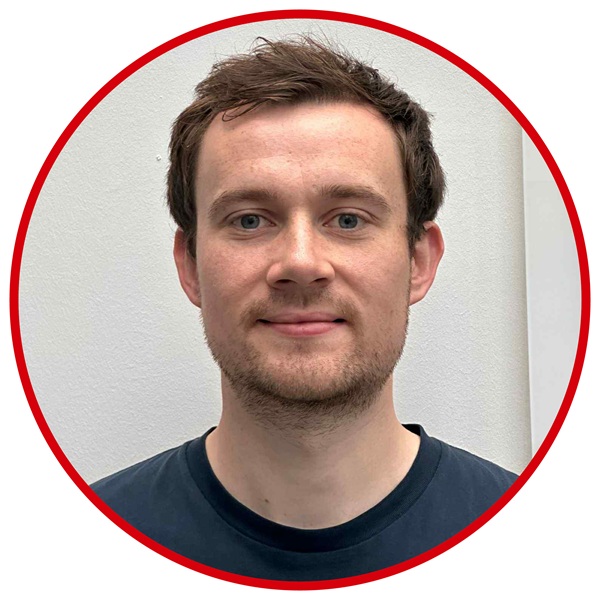
Fionntán used his Career Development Days to move from ad hoc learning to a more strategic, intentional approach, gaining high-level experience through national working groups, conference organisation, and structured career planning. By using his development time to broaden his perspective and strengthen his academic CV, he has developed greater clarity, confidence, and direction for the next stage of his career.
Fionntán is a Research Fellow in the School of Mathematics and Physics, working on large-scale simulations of stellar explosions using supercomputers. After completing his undergraduate and Master’s degrees at Queen’s, he undertook a PhD with his current supervisor before securing a postdoctoral role. Now two years into his current post, he is increasingly focused on preparing for the next stage of his academic career.
Fionntán first heard about the Career Development Days policy when he attended the PDC’s New Postdoc Induction and sees it as a valuable framework to give postdocs both permission and encouragement to pursue broader opportunities.
“Having protected career development time gives me peace of mind - a nudge to say yes to good opportunities that come across my desk. Career development days make it easier to prioritise development when research can otherwise be all-consuming.”
He emphasises that the most challenging part is often just getting started, but he’s never regretted investing time in development.
“The hard bit is deciding to do it: while my supervisor is very supportive it can still be difficult to prioritise development time. Once you get going, the benefits are clear. These experiences have helped me build my CV and think more strategically about what I want from my career.”
Fionntán used his development days to join a national working group on data strategy for DiRAC - the UK’s High Performance Computing service for astrophysics and related fields. As part of a multidisciplinary panel, he helped shape policy recommendations on data sharing and management across fields including particle physics, nuclear theory, and planetary science.
“It was fascinating to see how different each field's needs were and to watch the negotiation and compromise involved in shaping a solution. It gave me a new perspective on how research infrastructures operate, and how much organisation and coordination it takes to meet competing demands.”
This insight into the broader research ecosystem has helped Fionntán to enhance his CV with experience that’s often hard to come by at postdoctoral level.
He also joined the scientific organising committee for an international conference in astrophysics, helping to shortlist keynote speakers and allocate small pots of funding. “Being part of that process has made me feel much more prepared to lead something similar in future.”
“I didn’t expect it to be so useful, but it really made me stop and reflect on where I’m going and what I want from my career. You can tell yourself you’ll take a day to think about your future, but it’s easy to deprioritise that. Signing up for a structured course gave me protected time to think, which I wouldn’t have carved out otherwise.”
Fionntán encourages others to use their full allocation of development time; not just for training, but for roles and experiences that add depth to their CV. He highlights the importance of proactively identifying areas for growth.
“Reflect on what you haven’t done yet and where there are gaps in your CV. That can help guide what you should be looking for. Also, talk to your PI. Sometimes they’ll hear about great opportunities before you do. If you let them know what you’re interested in, they can help you find the right fit.”
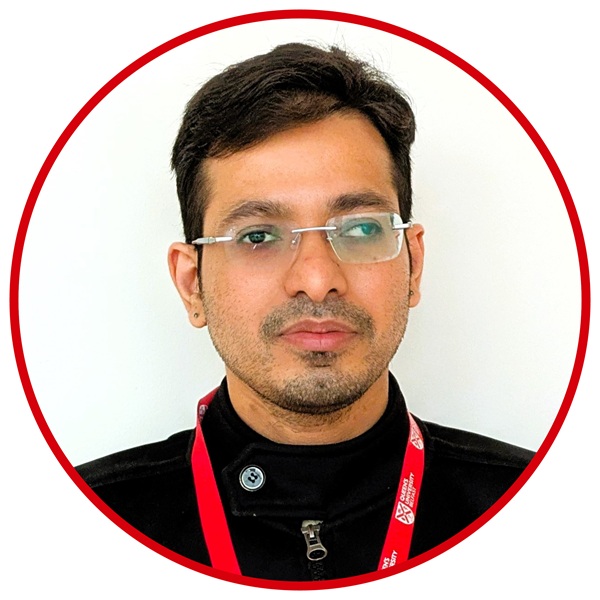
Susanta used his Career Development Days to strengthen his leadership skills and confidence through collaboration and mentorship. By actively seeking feedback, engaging across disciplines, and completing the CRUK Bridge to Academic Leadership programme, he has developed the insight and experience to prepare for leading his own research group.
Susanta is a Research Fellow in the Johnston Cancer Research Centre at Queen’s University Belfast in the RNA Biology Lab of Dr. Mehdi Jafarnejad. He completed his PhD at the CSIR-Indian Institute of Chemical Biology before joining Queen’s in 2022. Now a well-established researcher who is managing several research projects, Susanta is using his career development days to strengthen his academic leadership skills and prepare for research independence.
A central theme in Susanta’s development has been building networks and the power of collaboration. He has consistently sought support and honest feedback from mentors, colleagues, and peers – both within and beyond Queen’s and recognises that career development is not a solitary pursuit. Coming from a different culture, Susanta acknowledges that communicating his research clearly was initially challenging, but open, constructive feedback has been key to his growth.
“I see career development as something you can't do alone. Science is a team effort. My supervisor, Dr Jafarnejad, gave me detailed, critical feedback on my proposals and helped me understand the UK funding system. I am grateful to Dr Emma Kerr (CRUK Werth Trust Fellow, QUB) for guiding me through the reviewer’s perspective. I also asked for input from other colleagues, including collaborators from other institutes. Their honest critiques helped me to shape and communicate my ideas in a simple manner.”
He also highlights the value of feedback and input from those outside his discipline:
“When someone outside your field gives honest feedback, it forces you to sharpen your message and omit field-specific jargon. That’s something I’ve really benefited from and now try to do for others as well.”
Susanta used career development days to apply for and participate in the prestigious Cancer Research UK Bridge to Academic Leadership programme - a competitive, six-month course supporting early career researchers who aim to lead independent research groups. The programme combined structured training with practical tasks. Participants drafted and pitched real proposals and engaged with mock panel interview processes, receiving expert feedback along the way.
Susanta found the leadership elements of the programme particularly eye-opening, including sessions on negotiating skills, setting up a new lab, recruiting personnel, and communicating vision and values as a leader.
“The programme gave me a much deeper understanding of what it really means to lead an independent research group. It’s not just about doing good science - it’s also about managing people, time, funding, and other responsibilities. We learned how to recruit and support team members, communicate clearly, and make decisions as a leader to run a successful lab.”
Susanta was subsequently awarded the Bridge to Academic Leadership Award, giving him up to £25k to build his research niche and generate preliminary data which he will use to strengthen upcoming independent fellowship applications.
Susanta speaks candidly about the imposter syndrome many researchers face. One of the most valuable lessons he took from the CRUK leadership programme was the importance of self-identity and honesty.
“There were times I didn’t feel confident but what I learned is that it’s okay not to know something. If you’re honest about it and open to learning, people will support you. That mindset has helped me grow much more than pretending to have all the answers.”
He encourages other postdocs to take a similarly open and collaborative approach to development. Reaching out to supervisors, peers, or even contacts outside your field, he says, can make a significant difference.
“You don’t need to have all the answers. Talk to your PI and postdoc colleagues who might be your future collaborators as well. Ask someone to read your work. Career development is a shared process, so don’t be afraid to involve others.”
Susanta’s case study illustrates how career development days can be used to build leadership capacity and develop confidence. By treating development as a collaborative and reflective process, Susanta has taken concrete steps toward academic independence.
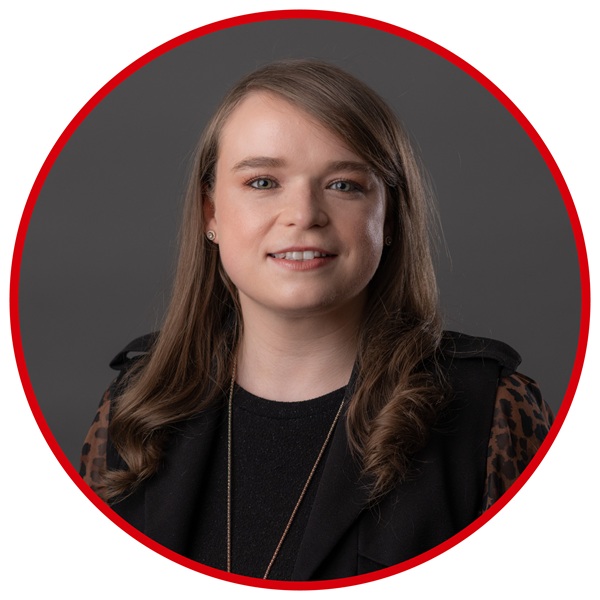
Danielle’s use of her Career Development Days has evolved alongside her postdoctoral career - from building confidence through training and mentoring in the early stages to now focusing on leadership, fellowship preparation, and community engagement. By using her development time strategically, she has strengthened her academic direction, visibility, and influence.
Danielle’s approach to using her career development days has evolved as her career has progressed. In her early postdoctoral years, she focused on mentoring and formal training to build essential skills and confidence, identify gaps in her CV and plan for the future. She took part in the PDC’s Group Mentoring Programme, her School’s mentoring scheme, and the Postdoctoral Leadership Programme, as well as training about supervision. This early investment in career development laid the groundwork for how she now approaches her development more strategically. Instead of focusing on training or related opportunities, Danielle has begun dedicating days to fellowship preparation, public and patient involvement activities, and building networks to support her academic career.
“In the early stages, I used my days mainly for training courses and mentoring programmes – things that helped me build confidence and think about where I wanted to go with my career. Now I’m using them to put those skills into practice by working on my fellowship proposal and public engagement activities.”
A major focus of Danielle’s development time has been her role as Chair of the Postdoc Society at Queen’s – a university-wide, postdoc-led group that promotes networking, wellbeing, and visibility for research staff across the University.
In her role as Postdoc Society Chair, Danielle has gained a breadth of valuable transferable skills through planning and chairing meetings, overseeing budgets, coordinating events, and representing the Society on the University’s Postdoctoral and Research Staff Oversight Group (PROG).
“It’s helped me to develop my leadership, organisation, and communication skills - particularly learning how to adapt my communication style to suit different personalities. Coordinating a diverse group has taught me how to make sure everyone’s voice is heard. That’s something I know will be valuable throughout my career, inside or outside of academia.”
Her leadership role and the visibility it offers has led to other opportunities, including serving as a Postdoc Representative and member of the Culture Group for the Centre for Public Health, where she advocates for positive research culture and has strengthened her understanding of how the University operates.
“These roles have given me a much better understanding of how Queen’s operates and helped me build networks with people I wouldn’t have met otherwise – from administrators and academics to colleagues in other faculties. It’s given me a real insight into how change happens across the university. It’s also shown me that putting yourself forward for something can open doors you might not expect”
Danielle encourages postdocs to plan their development intentionally and make the most of what’s on offer.
“Keep an eye on the opportunities the PDC shares and talk to other postdocs about what’s worked for them. Some of the best things I’ve done came from conversations or following up on something that caught my attention. Be open to new experiences like joining a committee or society, because you’ll gain skills you don’t expect. But equally, don’t be afraid to say no to things that don’t fit your goals. Use your career development days for what will genuinely develop you.”
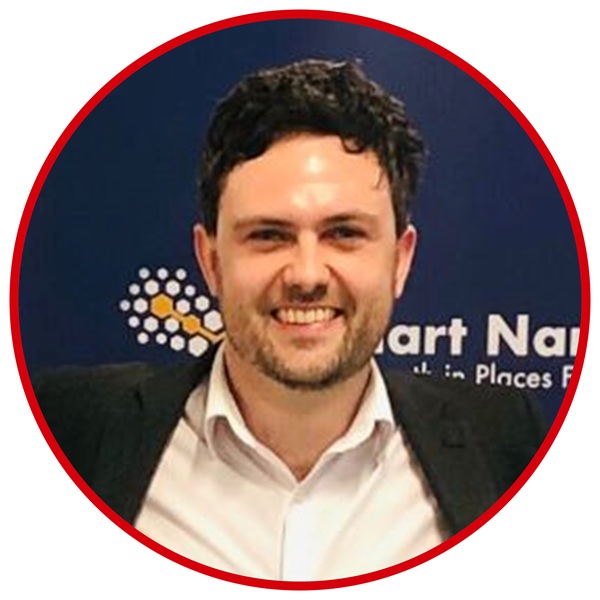
Mike used his Career Development Days to expand his professional reach by building networks, exploring industry perspectives, and developing new research ideas that strengthened his academic profile. His experience shows how using protected career development time strategically can spark unexpected opportunities and create real momentum for future career success.
Mike is a Research Fellow in the School of Mathematics and Physics, working on the Smart Nano NI project – a large, industry-facing consortium focused on photonics, nanotechnology, and smart manufacturing. He completed his PhD at Queen’s, specialising in physics and spectroscopy, and has previously held postdoctoral roles at the University of Birmingham and in the School of Biological Sciences at Queen’s.
From Training to Impactful Development
Mike first learned about Career Development Days through completing his Personal Development Review (PDR) and immediately recognised their value.
“With the temporary nature of postdoc roles, at some point most of us will need to move on – whether that’s to an academic role, industry job, or something else entirely. Having dedicated time to work on your own development puts you in a stronger position for that next step.”
At first, Mike assumed he would use his days for online training. Instead, they became a way to pursue a broader range of opportunities that would have been otherwise difficult to prioritise. One example was attending an industry-focused event that gave him a clearer picture of market trends and the relevance of his skills.
“Normally, I might have said I was too busy, but knowing I had time set aside encouraged me to go. The event was very different from the academic conferences I’m used to and gave me a better sense of what’s happening in industry. Even if I don’t work directly with those companies now, having that awareness could be useful for future collaborations or career moves.”
Building a Network and Exploring New Research Areas
Mike has also used his career development days to expand his professional network through visiting and delivering presentations at multiple institutions. While not directly tied to his current project, these activities broadened his horizons, helped him develop independent ideas, and built his network in a way that will support future funding or fellowship applications.
Some speaking opportunities arose from existing relationships, such as returning to speak at the University of Birmingham where he previously worked, while others came from advertised calls like the Postdoc Spotlights Seminar Series at University College Dublin. Mike also credits LinkedIn for helping him maintain and expand his network.
“Posting on LinkedIn occasionally about your research and what you’re involved in can spark conversations and lead to opportunities you wouldn’t have known about otherwise. It also helps to maintain connections made at conferences or visits to other institutions.”
Mike reflects that it can be difficult to distinguish between “normal work” and career development, but having dedicated Career Development Days encourages him to prioritise activities essential for his professional growth.
Advice for Other Postdocs
Mike encourages postdocs to be proactive in seeking out development opportunities and building networks. Even without existing connections, reaching out to other researchers or industry contacts can lead to unexpected opportunities – “Try to be outward-looking and proactive. The more you put yourself out there, the more likely you are to find development opportunities that align with your goals.”
Key Takeaways
Mike’s experience shows how Career Development Days can go beyond training. They enable postdocs to explore new research areas, develop independent ideas, and expand professional networks. By embracing activities outside his immediate project, Mike strengthened his CV, supported his next career steps, and demonstrated the value of saying yes to opportunities that might otherwise be overlooked.
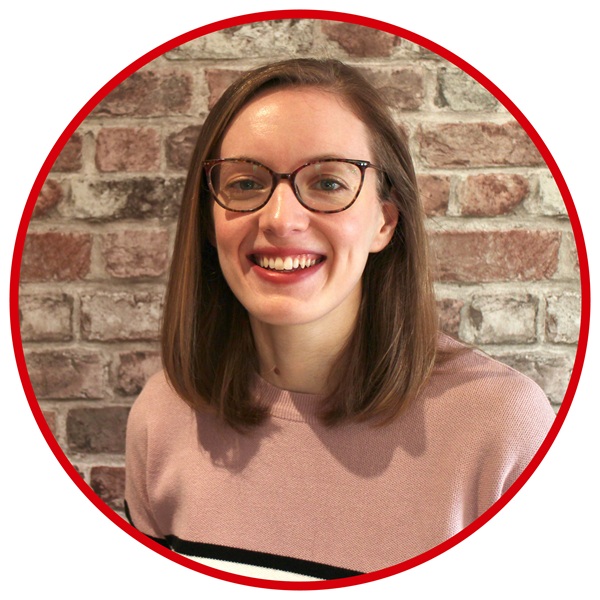
Claire used her Career Development Days to plan, revise, and successfully apply for a competitive postdoctoral fellowship, illustrating how protected development time can drive focused growth and career progression.
Claire is a Research Fellow based in the Centre for Public Health. She completed a Masters at Queen’s in Biochemistry, followed by a PhD at the University of Oxford in Interdisciplinary Bioscience. She returned to Belfast in 2021 to begin her postdoctoral research, which focuses on the genetics, epigenetics and multiomics of diabetic and chronic kidney disease. Claire recently secured the Vivensa Foundation Proleptic Postdoctoral Fellowship to support the next stage of her career.
Claire learned about the Career Development Days policy through attending the New Postdoc Induction and later planned how to use them through her Personal Development Review (PDR). She emphasises the importance of treating development as an ongoing process and highlights the role of a supportive supervisor in making that possible.
“It’s been really helpful having that flexibility, where my development has been viewed as central to the overall process of the research rather than something separate. My supervisor’s support has made such a difference, helping me to balance my project with working on followship applications.”
Claire didn’t track each development day individually but maintained an open dialogue with her supervisor and reflected on her activities through the PDR process. This ongoing approach enabled her to build and revise her fellowship application in a way that complemented her current project. Flexibility at Queen’s, supported by her supervisor, enabled Claire to balance personal and professional demands while maximising training and development opportunities.
Claire’s fellowship application evolved through multiple iterations, shaped by input from colleagues, collaborators, and the Research Development team at Queen’s. Over time, feedback helped her refine her proposal into a successful application.
“I’m so thankful for the support I received from the Research Development team here at Queen’s. They helped me shape each version of my application, brought in expert reviewers, and ran mock interview panels. They didn’t just offer one-off advice, rather we developed an ongoing relationship, and that support made a real difference in putting the final, successful application together.”
Claire also emphasises the importance of building a strong network. As part of preparing her application, she sought feedback from a range of experts; from clinicians to members of the public aligned with the project’s aims. In particular, she worked with the NI Kidney Research Fund and engaged with patients to review and strengthen her fellowship applications, in particular, her lay summary and Patient and Public Involvement (PPI) plan.
“I’d had 3 or 4 unsuccessful fellowship applications. It was frustrating at times, but each time I faced rejection my proposal improved thanks to feedback from colleagues and reviewers. Looking back, I can see how much I developed both professionally and personally because of that process.”
She encourages other postdocs not to see rejection as failure, but as part of a developmental process.
Claire advises postdocs to start early and plan strategically. She used an Excel tracker to monitor relevant funding calls, deadlines, internal submission dates and key contacts, giving her time to coordinate with collaborators and plan around her responsibilities.
“Some applications can be 40 pages long or more. You need to start preparing your application well in advance. Be proactive in your approach – don’t wait until the call is announced!”